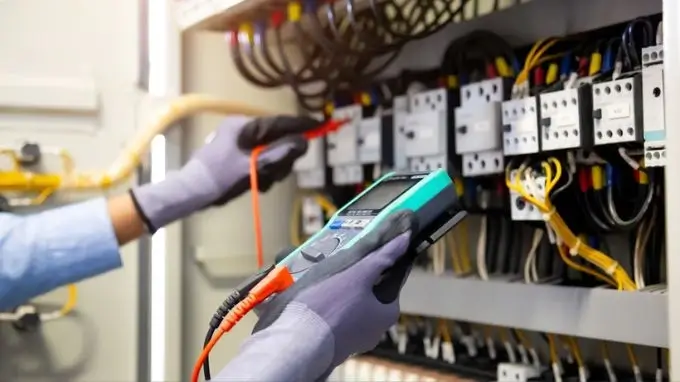Comprehensive assistance in mechanical engineering industry support to meet your requirements.
Comprehensive assistance in mechanical engineering industry support to meet your requirements.
Blog Article
Leading Tips for Effective Electric System Troubleshooting
Fixing electric systems requires a methodical strategy, grounded in a comprehensive understanding of electric principles and security procedures. By acquainting oneself with circuit elements, utilizing essential devices, and adhering to a structured analysis method, professionals can efficiently recognize and deal with concerns. The nuances of efficient fixing extend beyond simple technological knowledge; understanding how to record findings and focus on safety can considerably influence results. As we check out these important components even more, it ends up being clear that understanding this process is not just useful yet necessary for success in the field.
Understand the Fundamentals
Comprehending the basics of electrical systems is vital for effective troubleshooting, as a solid foundation permits specialists to identify and deal with concerns extra efficiently. A detailed understanding of electrical concepts, such as voltage, present, resistance, and power, is vital in determining the root creates of issues. Voltage is the electrical possible distinction that drives current through a circuit, while resistance opposes the flow of current, impacting the overall capability of the system.
Experience with circuit parts, including resistors, capacitors, diodes, and switches over, is likewise paramount. Each element plays a distinctive duty in circuit behavior and can affect performance when malfunctioning. Furthermore, understanding collection and identical circuit setups is important, as these plans influence the circulation of voltage and current within the system.
Service technicians should be conscious of possible threats, such as shock and short circuits, to implement risk-free troubleshooting techniques. By understanding these fundamental concepts, specialists improve their capability to conduct efficient diagnostics and repair work, inevitably leading to improved performance and reliability of electric systems (electrical system troubleshooting).
Gather Necessary Devices
Efficient troubleshooting of electrical systems calls for the ideal set of devices to diagnose and resolve concerns precisely. Important devices include a multimeter, which measures voltage, existing, and resistance, enabling for precise analyses of electrical parts.
In addition, insulated hand devices such as screwdrivers, pliers, and cable strippers are crucial for securely manipulating electrical connections. It is additionally a good idea to have a circuit tester on hand to validate the presence of voltage in electrical outlets and cables. For more complicated systems, a thermal imaging camera can help discover overheating parts, suggesting possible failings.

Follow a Systematic Strategy
Having actually collected the ideal devices, the next action in repairing electrical systems is to comply with a methodical method. A methodical strategy guarantees that service technicians can determine mistakes successfully and properly, lessening downtime and preventing unneeded repair services.
Begin by assessing the system's schematic representations and requirements. This involves monitoring each component methodically, beginning from the power source and functioning in the direction of the tons.
Utilize screening tools, such as multimeters and oscilloscopes, to collect objective information regarding voltage, current, and resistance at numerous factors within the system. This empirical evidence will certainly lead your troubleshooting initiatives and aid to validate or remove possible root causes of failing.
Furthermore, think about ecological elements that might influence the system's efficiency, such as temperature variations or wetness access. An extensive examination of wiring, links, and components will ensure that all opportunities are made up.
File Your Searchings For
Extensive paperwork is vital in the troubleshooting process of electric systems. Accurate documents boost the effectiveness of determining reoccuring issues and promote communication among staff member. Each searching for needs to be carefully kept in mind, consisting of symptoms observed, tests carried out, and the end like it results of those tests. electrical system troubleshooting. This method not just help in comprehending the origin cause of the issue yet likewise functions as a reference for future fixing initiatives.

Furthermore, maintaining a log of parts changed or repair services executed is invaluable. This details sustains stock management and can aid examine the durability and reliability of certain parts.
Inevitably, the documents procedure must be comprehensive yet concise, allowing very easy retrieval and evaluation - electrical system troubleshooting. By focusing on thorough documents, specialists can create a useful data base that not only help in current troubleshooting yet likewise encourages future maintenance initiatives, consequently improving general system reliability

Prioritize Safety Procedures
Recognizing the intrinsic risks related to electric systems is important for ensuring security throughout troubleshooting. Electrical shock, burns, and devices damage are simply a few of the possible risks that specialists encounter. Focusing on security procedures is not just a legal obligation however likewise a moral critical that safeguards both the specialist and the surrounding atmosphere.
Prior to starting any troubleshooting task, technicians ought to put on ideal individual protective equipment (PPE), including insulated gloves, security glasses, and flame-resistant apparel. Ensuring that the work area is dry and devoid of mess can significantly reduce the risk of accidents. It is vital to de-energize circuits before beginning any type of work, verifying that they are not live through the use of a multimeter or voltage tester.
Establishing clear interaction methods with employee is additionally check here essential; this makes sure that every person knows possible threats and the status of the electrical system being serviced. Finally, having an article source emergency reaction plan in place can confirm invaluable in the occasion of a case. By focusing on precaution, service technicians can efficiently mitigate threats and promote a safer workplace.
Verdict
Efficient electrical system troubleshooting depends on a detailed understanding of fundamental concepts and a methodical approach. By collecting vital tools, sticking to systematic analysis methods, and carefully recording findings, the repairing process comes to be much more reliable and trustworthy. Prioritizing precaution makes sure the wellness of individuals included and the honesty of the electrical system. Applying these techniques will certainly enhance the fixing experience, bring about quicker resolutions and enhanced functional efficiency in electric systems.
Report this page